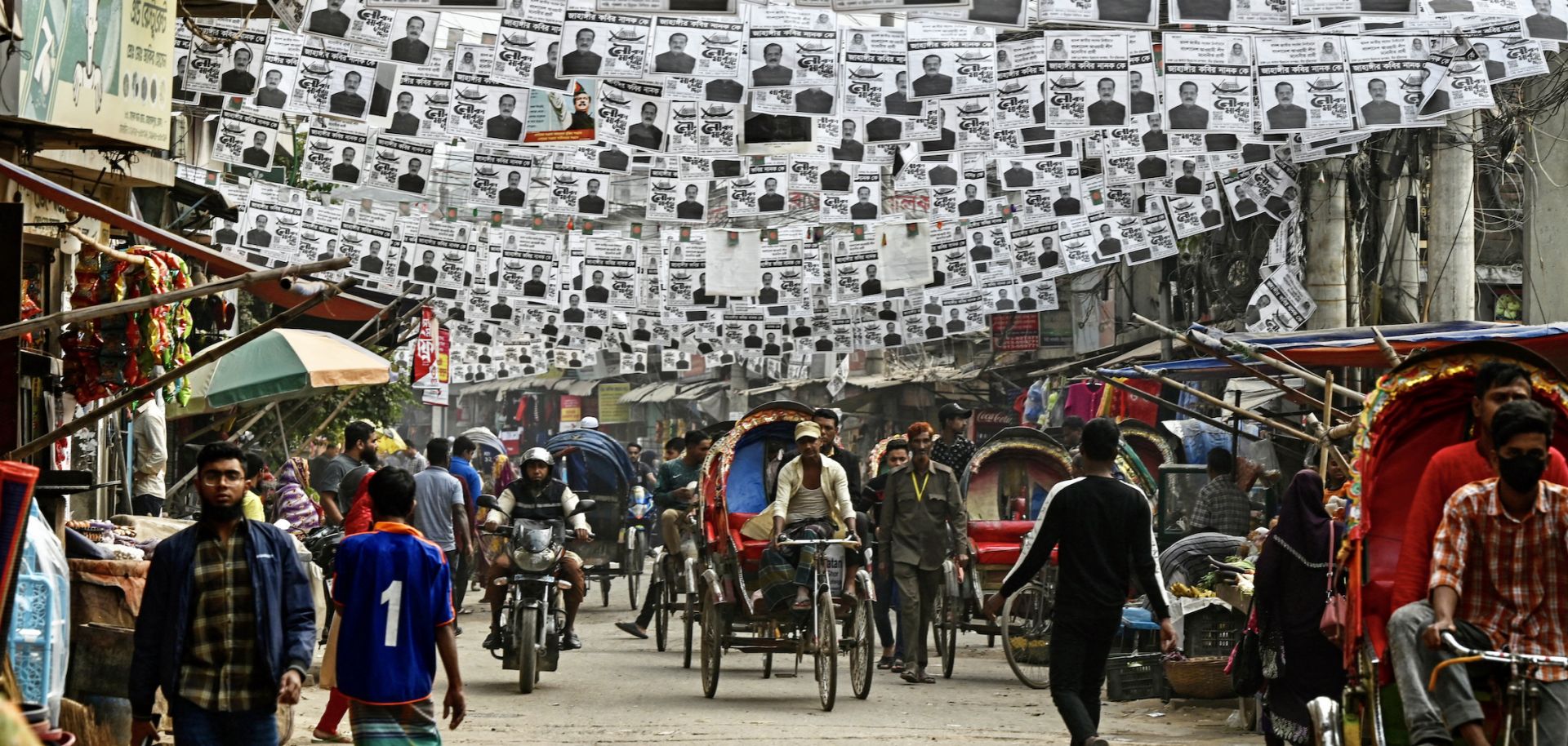Bangladesh's upcoming general election will likely produce short-term social unrest and open the door to potential foreign sanctions, but this will not affect the government's long-term goals of maintaining a nonaligned foreign policy and complying with its International Monetary Fund program. On Jan. 7, Bangladesh will hold general elections, with the ruling Awami League party, or AL, aiming to clinch a fifth term for Prime Minister Sheikh Hasina. The lead-up to elections has been marked by significant political turbulence, especially after the opposition Bangladesh Nationalist Party, or BNP, announced that it will boycott the election to protest the government's refusal to establish a neutral caretaker government to oversee elections. The BNP hopes that this boycott will delegitimize a likely Hasina victory that the party alleges would be the result of electoral rigging by the AL. Boycotts have marred upcoming elections with protests, violence and heavy government crackdowns on dissent....

